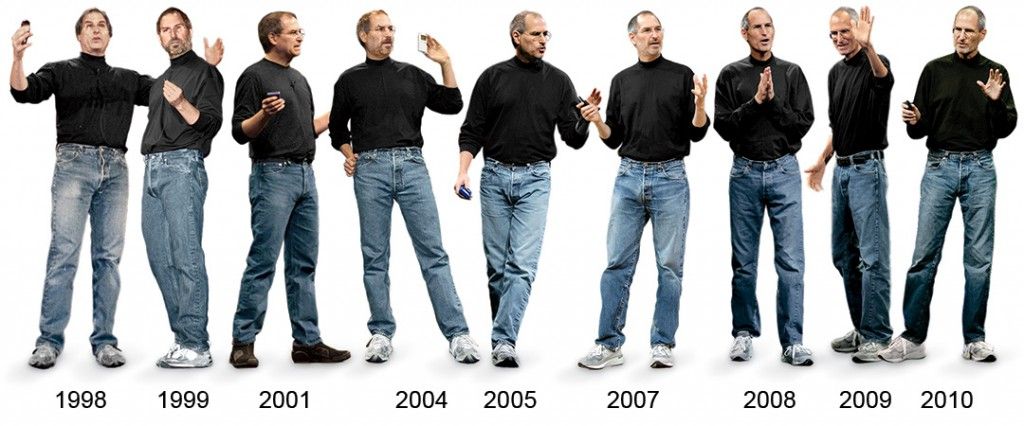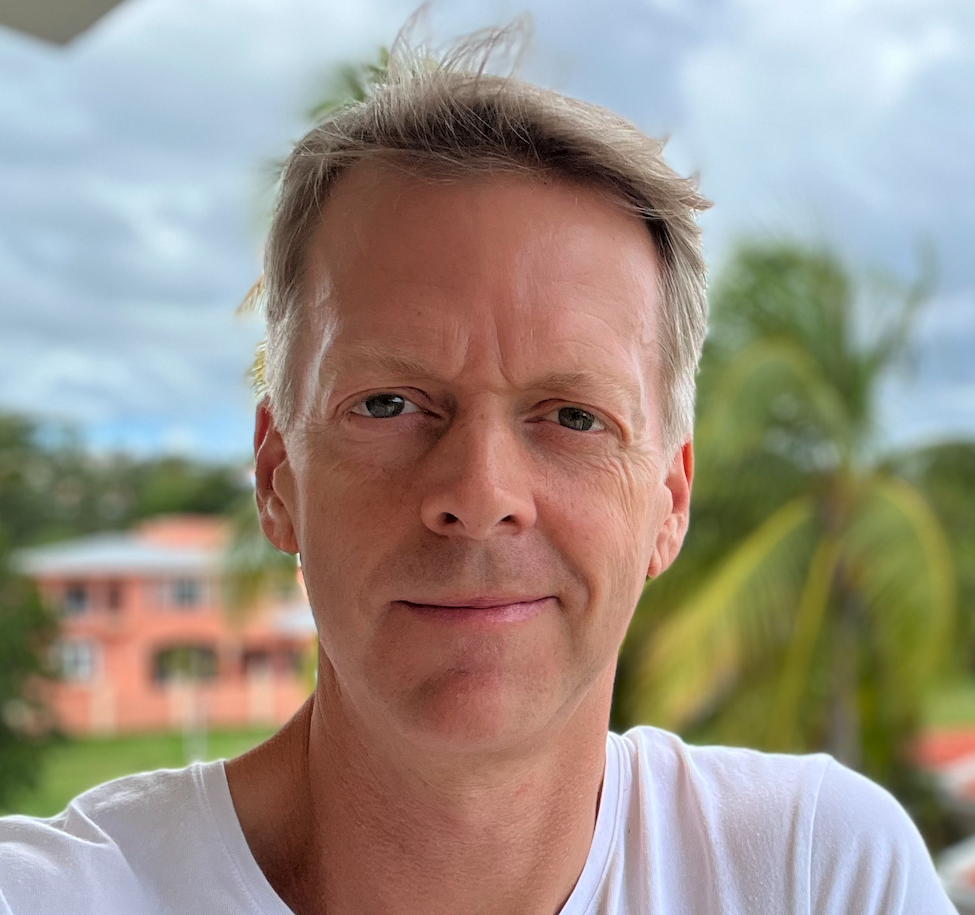Mark Zuckerberg wears the same grey shirt every day. The blue jeans, black turtleneck and New Balance running shoes of Steve Jobs are legendary. Einstein had a closet full of the same grey suit. Christopher Nolan wears the same blue shirt and blazer. The list could go on and on.

What’s going on with these guys?
They wear the same thing every day to cut down on the number of decisions they need to make. I never thought what to wear each day took that much energy. I’m usually not exhausted after deciding which t-shirt to wear. So is that really a thing?
Yes, it is, actually.
Every day we make hundreds of decisions. Some are important. Most are not. Psychologists propose that humans only have the capacity to make a finite number of decisions each day. They call it decision fatigue. It’s the reason Mark Zuckerberg wears the same thing every day. He has so many decisions to make each day, he wants to have one fewer to save his mental energy for building Facebook.
Even former President Barack Obama is a believer in cutting down on the decision-making. Apparently, when you may have to decide whether or not to push The Button, you don’t want to be out of decision-making capacity. He told Vanity Fair:
“You’ll see I wear only gray or blue suits,” [Obama] said. “I’m trying to pare down decisions. I don’t want to make decisions about what I’m eating or wearing. Because I have too many other decisions to make.”
The more decisions we make in a day, the worse our capacity becomes to make good decisions. That is, our decision-making ability deteriorates throughout the day. For example, according to one study, judges make fewer favorable decisions later in the day. 1 So if you go to traffic court, try to get an early appointment.
How does this play out for us throughout the day? Here’s an example:
Dean Spears of Princeton University describes why it can be difficult to resist buying impulse items at the grocery store checkout and how it can negatively affect people who may have to make a lot of decisions each day, such as a poor person.
“If a trip to the supermarket induces more decision fatigue in the poor than in the rich – because each purchase requires more mental trade-offs – by the time they reach the cash register, they’ll have less willpower left to resist the Mars bars and Skittles. Not for nothing are these items called impulse purchases.”2
John Tierney, co-author of the New York Times bestselling book “Willpower,” puts it this way,
“Decision fatigue helps explain why ordinarily sensible people get angry at colleagues and families, splurge on clothes, buy junk food at the supermarket and can’t resist the dealer’s offer to rustproof their new car. No matter how rational and high-minded you try to be, you can’t make decision after decision without paying a biological price. It’s different from ordinary physical fatigue – you’re not consciously aware of being tired – but you’re low on mental energy.”
There are a few things we can do to cut down on decision fatigue. First, have a system to follow. Having a system or routine allows you to make a lot of decisions one time, as you set up the system. Then each time you’re faced with that decision, you don’t have to make it again and again.
Law professor Cass Sunstein calls these “second-order decisions,” meaning decisions that follow a rule. Schwartz shows that these second-order decisions can be divided into general categories of effectiveness for different situations: presumptions, standards, and cultural codes. Each of these methods is a useful way people use to parse the vast array of choices they confront.
Second, reduce the available choices and avoid the overwhelm that comes as a result of the Paradox of Choice, which finds that the more options we have, the less likely we are to make any choice at all. This paradox is closely related to decision fatigue and may illustrate the effects on an overwhelmed and tired mind.
Lastly, do the same things every day, which is the advice people like Zuckerberg and Nolan follow. If wearing the same clothes each day sounds radical, try waking up at the same time every day, eating the same breakfast and working out every morning. That cuts down on the chances that when your alarm goes off your brain has the same internal struggle about whether or not you’ll get up and do your workout. Building a strong habit makes self-discipline less important. Eventually, you just automatically do it without much thought or mental struggle.
You’ve already decided and you do it every day, so it’ll be much easier. Having routines is part of building a strong habit and making decisions once and sticking to them reduces decision fatigue. It’s a 2 for 1 deal!
Aristotle said, “Excellence is an art won by training and habituation.”
Batching can also be helpful to reduce the number of decisions you make. For example, do all your grocery shopping and meal prep on the same day each week. Buy the same foods and make the same meals. It may sound boring, but most of us buy the same things anyway, you’re just making it easier on yourself.
If none of that sounds appealing, you could always start by just wearing the same suit to work every day, like this newscaster in Australia. Surprisingly, no one noticed, but I bet he had a lot more mental energy to read the news.
Don’t miss the opportunity to connect
You don’t need motivation, you need education
12 dangerous moves that can kill your business
Using feedback to your advantage
The Tyranny of Small Decisions
Resolutions are stupid. Do this instead.
Incrementalism – Consistency beats mania, every time
Footnotes
